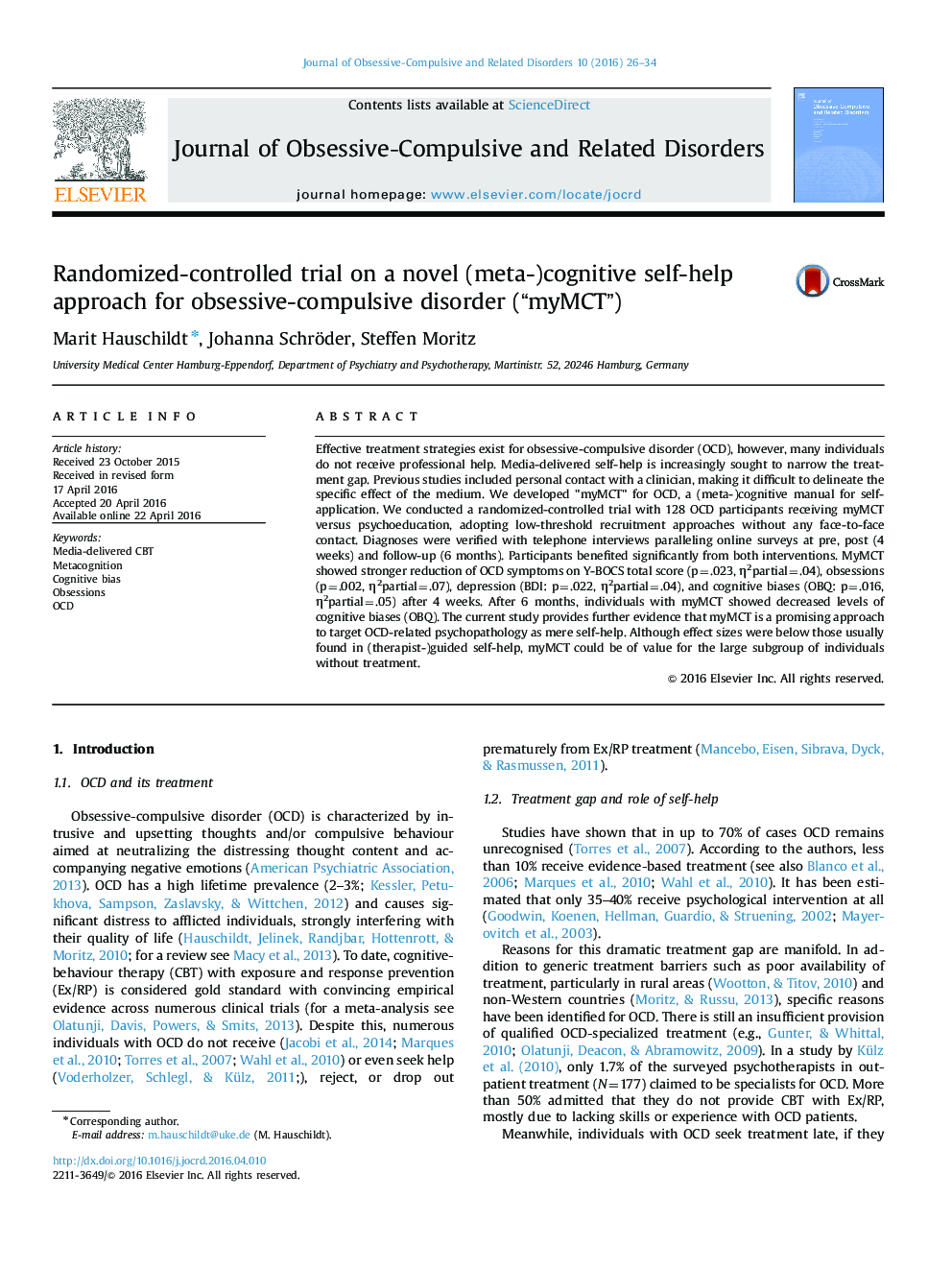| Article ID | Journal | Published Year | Pages | File Type |
|---|---|---|---|---|
| 912170 | Journal of Obsessive-Compulsive and Related Disorders | 2016 | 9 Pages |
•We developed a new metacognitive self-help manual (“myMCT”) for OCD.•We conducted a RCT on myMCT vs psychoeducation with no face-to-face contact•OCD participants benefited significantly from both interventions.•MyMCT showed a stronger reduction of OCD psychopathology after 4 weeks.•After 6 months,the myMCT group showed lower levels of (meta-)cognitive biases.
Effective treatment strategies exist for obsessive-compulsive disorder (OCD), however, many individuals do not receive professional help. Media-delivered self-help is increasingly sought to narrow the treatment gap. Previous studies included personal contact with a clinician, making it difficult to delineate the specific effect of the medium. We developed "myMCT" for OCD, a (meta-)cognitive manual for self-application. We conducted a randomized-controlled trial with 128 OCD participants receiving myMCT versus psychoeducation, adopting low-threshold recruitment approaches without any face-to-face contact. Diagnoses were verified with telephone interviews paralleling online surveys at pre, post (4 weeks) and follow-up (6 months). Participants benefited significantly from both interventions. MyMCT showed stronger reduction of OCD symptoms on Y-BOCS total score (p=.023, η2partial=.04), obsessions (p=.002, η2partial=.07), depression (BDI: p=.022, η2partial=.04), and cognitive biases (OBQ: p=.016, η2partial=.05) after 4 weeks. After 6 months, individuals with myMCT showed decreased levels of cognitive biases (OBQ). The current study provides further evidence that myMCT is a promising approach to target OCD-related psychopathology as mere self-help. Although effect sizes were below those usually found in (therapist-)guided self-help, myMCT could be of value for the large subgroup of individuals without treatment.
